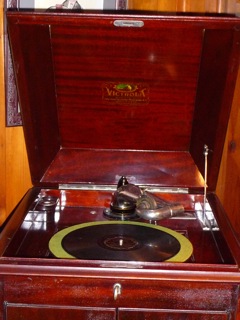 Vintage sound recordings, including never released and out-of-print masters featuring Billie Holiday, Louis Armstrong and Bing Crosby were donated to the American public by one of the world’s largest recording companies.
Vintage sound recordings, including never released and out-of-print masters featuring Billie Holiday, Louis Armstrong and Bing Crosby were donated to the American public by one of the world’s largest recording companies.
The Library of Congress and the Universal Music Group (UMG) announced the donation in January boosting the Library’s Recorded Sound Section, which has more than 3 million sound recordings in its collection.
UMG’s gift is the largest single donation ever received by the Library’s audio-visual division and the first major collection of studio master materials ever obtained by the nation’s oldest cultural institution. Among the collection’s thousands of metal and lacquer discs and master mono tapes are released and unreleased versions of recordings by such seminal artists as Louis Armstrong, Bing Crosby, Tommy Dorsey, Billie Holiday, the Andrews Sisters, Connee Boswell, Jimmy Dorsey, the Mills Brothers, Guy Lombardo, Ella Fitzgerald, Fred Waring, Judy Garland, and Dinah Washington.
They include:
* Bing Crosby’s 1947 version of “White Christmas”
* Louis Armstrong singing “Ain’t Misbehavin’”
* The Mills Brothers’ “Paper Doll”
* Ella Fitzgerald’s and Louis Armstrong’s duet “Frim Fram Sauce”
* Les Paul’s “Guitar Boogie”
* Josh White singing “Jim Crow”
* Machito and his Afro-Cuban All Stars Mercury recordings
“A surprisingly high percentage of America’s music heritage since the early part of the 20th century has been lost due to neglect and deterioration,” said Librarian of Congress James H. Billington. “The donation of the UMG archive to the Library of Congress is a major gift to the nation that will help maintain the inter-generational connection that is essential to keeping alive, in our national memory, the music and sound recordings meaningful to past generations.”
The Universal Music Collection, which consists of the company’s best existing copies, will be cataloged and digitized at the Library’s Packard Campus for Audio Visual Conservation in Culpeper, Va., which will permanently secure their exceptional sonic quality.
This gift is particularly important in the context of the findings of the first comprehensive study ever conducted in the U.S., which found that only an estimated 14 percent of pre-1965 commercially released recordings were currently available from rights holders. The study also found that of the music released in the U.S. in the 1930s, only about 10 percent of it could be readily accessed by the public.
The Library will stream recordings from the collection on a website to be launched in the spring. The additions of these recordings will significantly broaden the scope of the site and enhance the Library’s already unprecedented authority to stream commercially owned sound recordings online.
Founded in 1800 with a donation of books by Thomas Jefferson, the Library of Congress is the nation’s oldest federal cultural institution. Many of the Library’s rich resources can be accessed through its website at www.loc.gov and via interactive exhibitions on a personalized website at myloc.gov.
The Packard Campus is a state-of-the-art facility where the nation’s library acquires, preserves and provides access to the world’s largest and most comprehensive collection of films, television programs, radio broadcasts and sound recordings (www.loc.gov/avconservation). The Packard Campus is funded as a gift to the nation by the Packard Humanities Institute and is home to more than six million collection items.
Universal Music Group is the world’s leading music company with wholly owned record operations or licensees in 77 countries. Its businesses also include Universal Music Publishing Group, the industry’s leading global music publishing operation. UMG’s record labels include: A&M/Octone, Decca, Deutsche Grammophon, Disa, Emarcy, Fonovisa, Interscope Geffen A&M Records, Island Def Jam Music Group, Lost Highway Records, Machete Music, MCA Nashville, Mercury Nashville, Mercury Records, Polydor Records, Show Dog–Universal Music, Universal Motown Republic Group, Universal Music Latino and Verve Music Group as well as a multitude of record labels owned or distributed by its record company subsidiaries around the world.



















